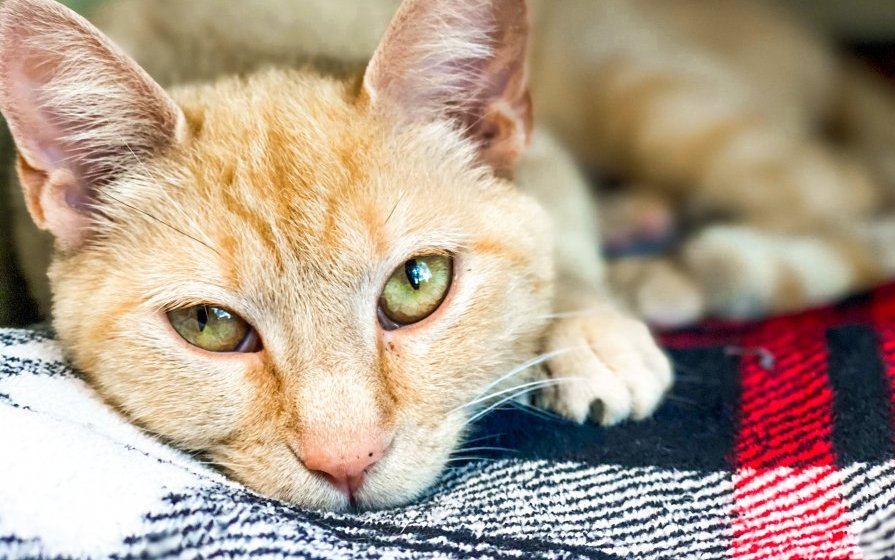
Hurricane Preparedness — Disaster Plan for Pets
The safety of our furry friends is a primary concern for many pet owners during a disaster. With hurricane season officially upon us, now is the time to revisit your disaster plan and ensure that you and your beloved pets are prepared.
Plan Ahead
Find a pet friendly hotel. Keep a list of at least three outside your immediate area.
Prepare an emergency kit for your pets. This should include your vet information, your contact information, gauze wrap, nonstick bandages, hydrogen peroxide, and adhesive tape.
Make sure your pets have an ID tag that is fastened to their collar. If your pet is not microchipped, consider doing so as a safety precaution.
Identify someone who can help. Determine a family member, friend or neighbor who lives nearby and would be willing to take your pets in the event you cannot make it home.
Create a Grab & Go Bag
- Food, water and any medications to last five days
- Vaccination record
- Leash/collar, city licenses, ID and rabies tags
- Sturdy and properly sized pet carriers for each pet
- Pet beds, toys and treats
- Plastic bags for disposal, litter box and litter
- Non-spill food and water bowls
- Current photos of you and your pets and descriptions of your pets to help others identify them in case you and your pets become separated — and to prove they are yours once you are reunited.
Stay Informed
Know what disasters could affect your area, which could call for an evacuation and when to shelter in place.
If sheltering in place, know what to do. Make sure you know which rooms are safe, be aware of your pet’s hiding spaces, and close off any small spaces where pets could get stuck.
Download a weather app. Sign up to get weather alerts from the National Weather Service to make sure you are updated as soon as news is available.
What To Do After a Disaster
Observe the environment. Check the area in and around your home to make sure you’re aware of any potential hazards that could harm your pets.
Monitor your pet. Contact your veterinarian immediately if your pets have any prolonged signs of stress, injuries or signs of illness.
Give your pets time. Disasters like hurricanes can be extremely stressful for your pets. Allow them uninterrupted times of rest so they can recover from the trauma. Re-establish a normal routine as quickly as possible, but understand that your pets may need time.
Comfort each other! One of the most beneficial ways to relieve stress is to spend time with your animal friends.
The Virginia Beach SPCA has pet emergency decals available for pet owners. Pick one up and place it on your door or window to alert first responders and rescue teams that there are pets inside the home. Stop by and pick yours up today.
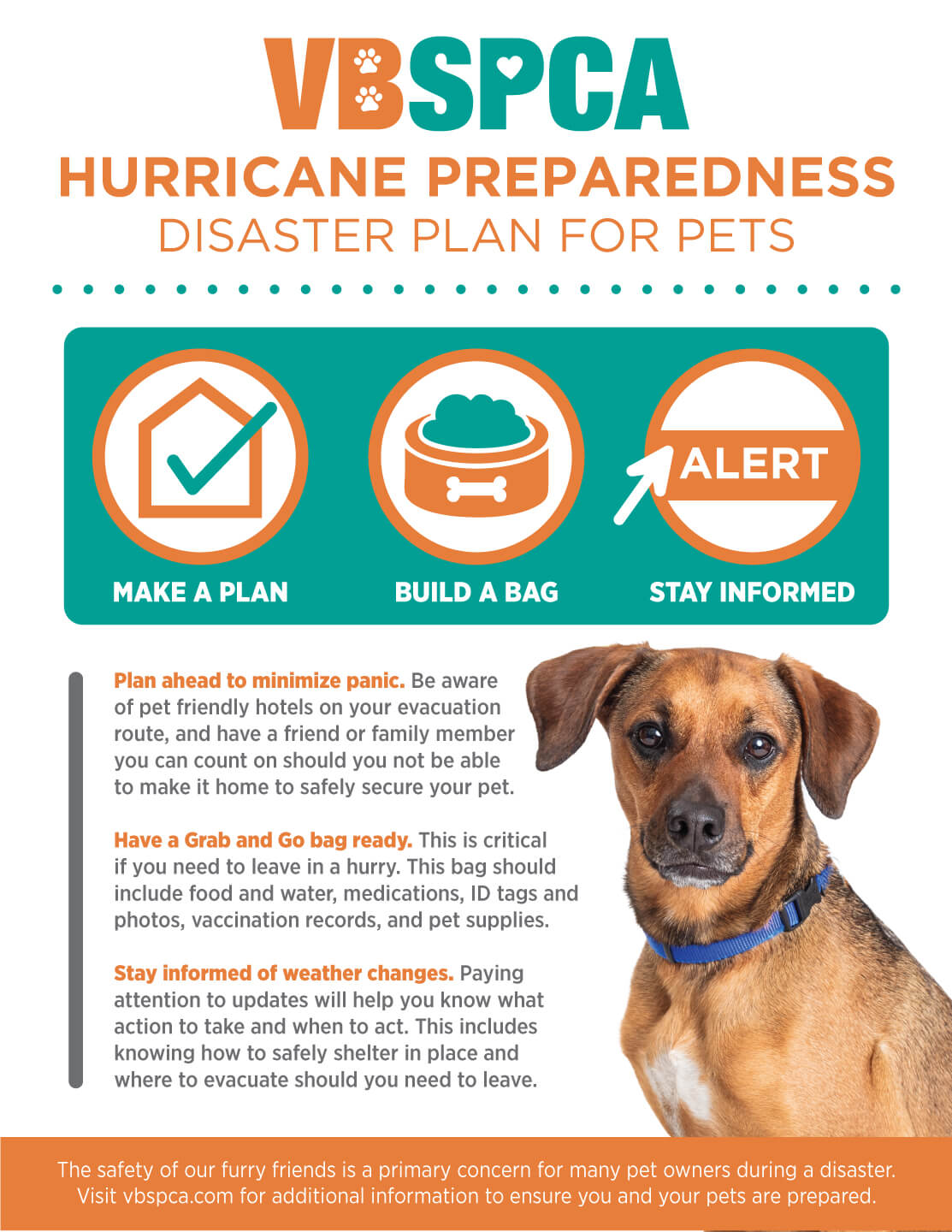
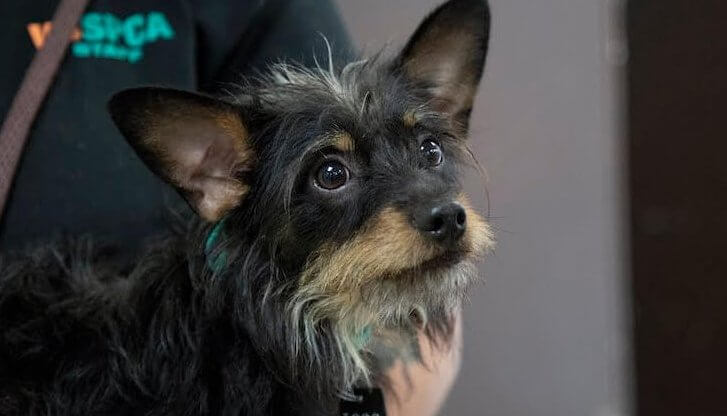
Heartworm Disease: Prevention Matters
As summer approaches, mosquito activity increases, and with more mosquitos comes a higher risk for heartworm disease. Now is the time to brush up on heartworm facts while also making sure your pets are protected from what is a very serious and life threatening situation.
What is heartworm disease? Heartworm disease is caused by Dirofilaria immitis, a parasitic worm transmitted by mosquitoes. If your pet is bitten by a carrier mosquito, microscopic larvae are deposited into the bloodstream, eventually taking up residence in the heart, lungs, and blood vessels. Without treatment, these worms can grow to 14 inches in length, eventually causing irreversible damage to the lungs and heart. Note that it only takes one bite for a dog or cat to be infected, and if your pet is not on prevention medication, your pet will contract the disease. Furthermore, just because you have an indoor pet does not mean there is an absence of risk.
To download our Infographic, click here.
The good news is that this disease can be avoided. There are a variety of heartworm prevention medications for both cats and dogs, and they are proven to be very effective when administered responsibly and correctly. However, if your pet has already contracted heartworm disease, treatment is only available for dogs. Sadly, there is not yet an approved treatment for heartworm positive cats, which makes feline heartworm prevention essential.
Over 20 different species of mosquitoes carry the parasite according to the American Heartworm Society, and they are active at different times of the day and year. Your pet should be on prevention year round.
If your canine is heartworm positive, treatment is serious and takes a minimum of 4 months to complete. It involves bloodwork, chest radiographs, and periods of prescribed rest. The rest is critical because if the heart rate is increased by exercise or excitement, the pieces of the dead worms can be forced into the blood vessels of the lungs, causing a potentially fatal pulmonary embolism.
It is recommended to have your pet tested annually. Heartworms can live for months before symptoms present themselves, and when they do show up, they can often be attributed to other ailments. This means that many pet parents have no idea their animal is heartworm positive. Fortunately, heartworm tests are quick and convenient, and you can access a test via our Walk-In Vaccine Clinic or through your current veterinarian. For a full list of our services, click here.
Over 1 million dogs in the U.S. currently have heartworm disease, and this number does not take into account animals not regularly tested or seen by a vet. Please ensure your pet is protected.
This article relied on information provided by the American Heartworm Society. Visit their website for more information.
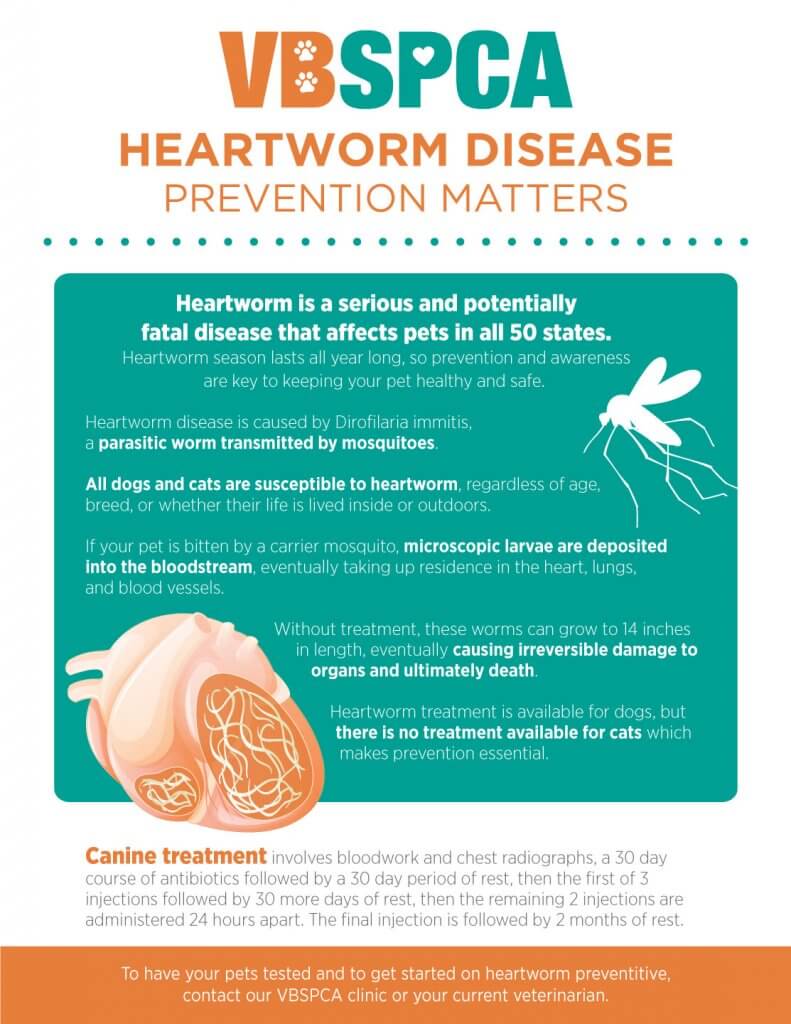

Happy Tails – Ollie
Every single animal that comes through our shelter has a story. Some are complex, many are sad, but all of them get better the minute they arrive at the Virginia Beach SPCA. However, as important of a role as our shelter plays in each story, the happily ever after is why we’re here. The second chances begin with us, but forever is what it’s all about.
VBSPCA adopters are an integral part of our mission, and this month we would like to shine our spotlight on VBSPCA friend and adopter Kim who welcomed sweet Ollie into her home and gave him the happily ever after he deserved.
How did you find Ollie?
I am a foster for the Virginia Beach SPCA and I received a message about some puppies who needed temporary care. I am always glad to help no matter what breed, but when I arrived and they brought out Dachshunds, I was really excited. I took two puppies homes to foster, Maverick (now Ollie) and Goose, and I immediately fell in love with them both.
What was Ollie’s story before he came into your life?
He came from a hoarding situation where he was living with 44 other Dachshunds. It was pretty terrible. When the animals were rescued from the 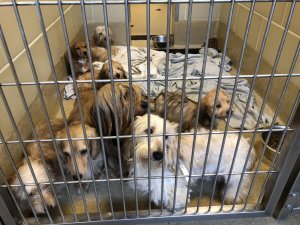 situation, a few different shelters stepped in to help. The Virginia Beach SPCA took 14 of the puppies and I was asked to foster two.
situation, a few different shelters stepped in to help. The Virginia Beach SPCA took 14 of the puppies and I was asked to foster two.
How did you help Ollie build confidence and trust?
His brother Goose has a bigger personality, so Ollie basically followed his brother around and became his shadow. He seemed shy and reserved, even for a puppy. That might be what happens when you live with so many other dogs… you learn to be in the background. However, once Goose went on to a new home, OIlie’s personality began to shine. He didn’t have any trust issues. He is a friend to anyone and is very patient and gentle.
How has he been doing in the home?
We’ve been having a great time watching him grow into his own little personality. He is so fun! There are 3 other dogs in the home and they have formed their own little pack, but his favorite is his Great Pyrenees brother Keigi. They all get along great and they make us laugh alot.
Please share a funny story or experience with Ollie.

Ollie was in the starting lineup for the 2020 Animal Planet Puppy Bowl XVI. Even though he can be such a crazy wild puppy at home, the experience of filming in NYC made him a little camera shy. All the commotion was a bit much, and he wouldn’t play or do anything on the field during the taping. He just wanted everyone to hold him. Although the did get the final play of the entire game, which was fun.
Does Ollie have any funny quirks or habits?
Sometimes he acts like a cat. He stretches like a cat and likes to sleep around the pillows when we are in bed. It’s cute.
How has Ollie enriched your life?
He brings so much love and joy into our home and makes us so happy. I really can’t imagine life without him.
Why should people adopt?
There are so many animals out there in need of a loving home, even pure breeds can be found. All these animals are so loving and appreciative for someone to just give them a chance to let them show how much they can bring to someone’s life. I love the wonderful work they do at the Virginia Beach SPCA. They go above and beyond to help all their animals find loving furever homes.
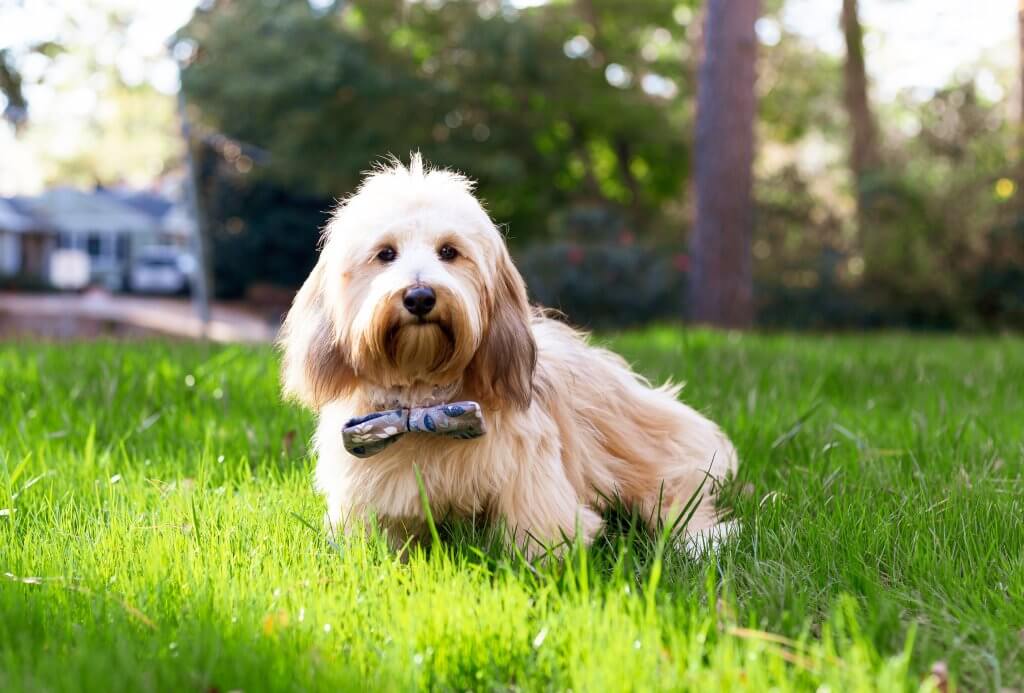

Pets and COVID-19
We’ve been receiving lots of questions about pets and COVID-19, so we sat down with VBSPCA Medical Director, Dr. AnnMarie Woyma, to get some answers to a few of the most common questions. Keep in mind that this is a new virus and information continues to evolve, so please check back for updates.
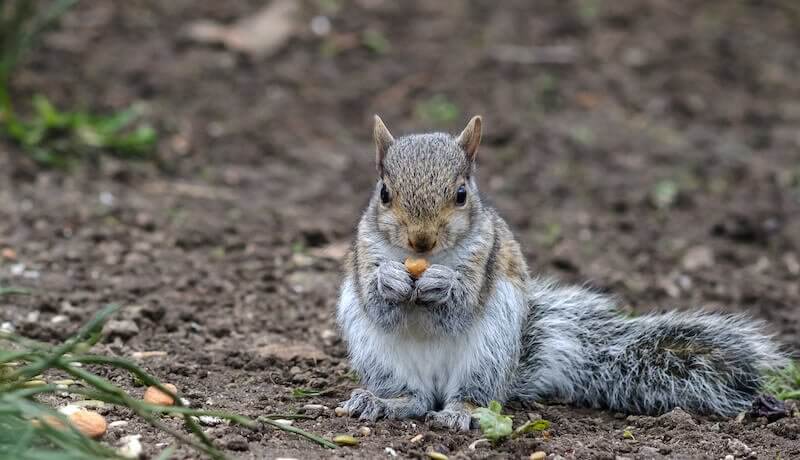
Wildlife – Is Human Intervention Necessary?
Spring is particularly busy for the Virginia Beach SPCA as we see baby wildlife being brought to the shelter under the assumption that they have been orphaned. This is often not the case, and it is of critical importance that humans know when wildlife actually needs our help and when it does not. Just because you see a baby creature alone in the wild does not mean it has been abandoned or orphaned. In these situations, human interference can bring unintended harm to the animal and can cause great stress to both the animal and the mother. Below are a few species commonly found in our area along with information to help you identify the best course of action should you come across them in the wild.
Baby Bunnies
Rabbits in burrows in the ground should be left alone. Their mother will only come to feed them twice a day, so just because you do not see the mother does not mean the rabbits are orphaned. Please leave them be.
Baby Birds
Baby birds with feathers that are hopping on the ground are called fledglings, and they are supposed to be on the ground and they are learning how to live. Leave them alone. Baby birds with few feathers may have fallen from the nest. If it is safe to do so, return the baby to the nest.
Squirrels
In most cases, young squirrels do not need help. They are independent at 10-12 weeks and can fend for themselves. If you have found a baby squirrel that has fallen from a tree and does not appear to be injured, keep your pets away from the baby and wait and see if the mother comes to the rescue. The ultimate goal is keep the squirrel with the mother in the environment it was born in.
Turtles
Turtles know where they are going. If you see a turtle crossing the road and is in danger, you may carefully move the turtle to the side of the road in the direction it was headed. It doesn’t need help beyond safely crossing the road. However, if you find a turtle in the road that has a crack in the shell, it needs help.
When help is needed:
The exception to the above is when you come across injured wildlife. It is the mission of the Virginia Beach SPCA to eliminate animal suffering, and our wildlife program is an extension of that. We provide triage services to injured wildlife only, and any wildlife that can be rehabilitated is transferred to a permitted rehabilitator in the community. If you have found injured wildlife that is actively bleeding or wounded or has been in the mouth of a cat or dog, please safely place wildlife in a carrier or shoebox and bring it to the Virginia Beach SPCA during regular operating hours. Please ensure that wildlife is safely secured in a lined box or carrier and do not provide wildlife with food or water. For more information, click here.
If you have found orphaned wildlife that is NOT injured, please contact your local rehabilitator. A full list can be found here. If you have found wildlife in need of rescue, call Tidewater Rescue at 757-255-8710 or Wildlife Response at 757-543-7000.
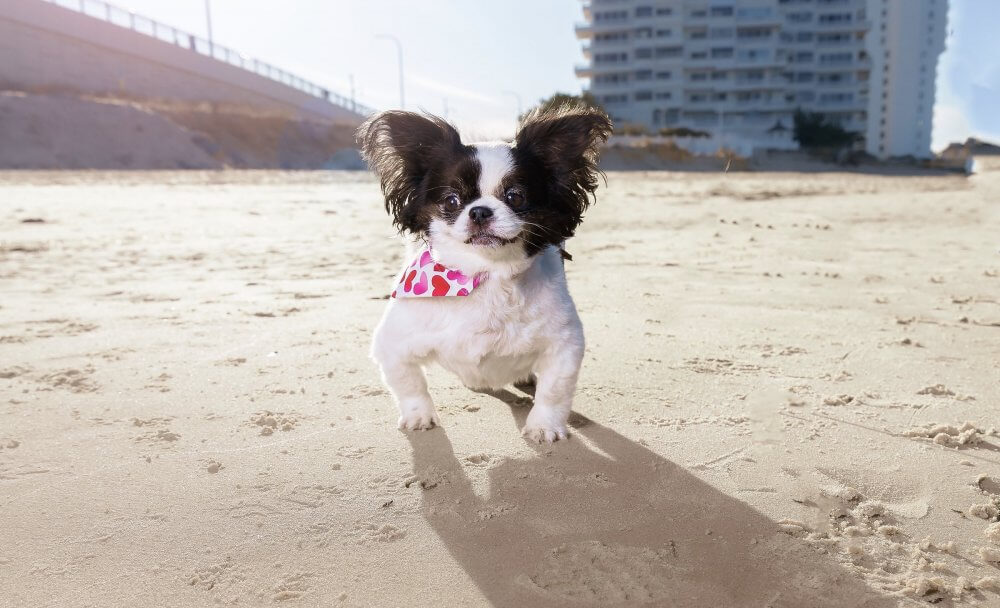
Happy Tails — Blossom
Every single animal that comes through our shelter has a story. Some are complex, many are sad, but all of them get better the minute they arrive at the Virginia Beach SPCA. However, as important of a role as our shelter plays in each story, the happily ever after is why we’re here. The second chances begin with us, but the forever is what it’s all about. VBSPCA adopters are an integral part of our mission, and this month we would like to shine our spotlight on the Landons – a family who welcomed sweet Maggie into their home back in 2018.
How did you find Maggie and why did you choose her?
One Saturday morning our nephew had a lacrosse game and I happened to be browsing the VBSPCA website when Maggie popped up. I guess you could say it was love at first sight. I left early and stopped by to meet this sweet baby. I sat in the visitation room, petting her and talking to her. She immediately rolled on her back for belly rubs and I knew she was mine.
What is her adoption story?
When I met Maggie, I was told she had a lot of health issues and that someone had donated money for some of her healthcare. I declined the donation and asked that it go to another animal that could benefit from it. I knew the health issues going in, but I knew we had the means and a wonderful veterinarian. My understanding of Maggie’s first years was that she was tethered on a porch by a shoestring and there were multiple pets on the property, which explains Maggie’s issues with protecting food.
How did you help her build confidence and trust?
 Maggie had a lot of trust issues when we brought her home. I knew we had to shower this angel with hugs, kisses and lots of love. Thankfully, my mother lives with us so she did not have to be left alone during the day, and I think this helped a great deal. (My mom’s name is Margaret, so she always says that Maggie is her namesake.) Seeing how Maggie has begun to trust, how she interacts with the other pups in the house, how she has really come into her own fills my heart with pure joy.
Maggie had a lot of trust issues when we brought her home. I knew we had to shower this angel with hugs, kisses and lots of love. Thankfully, my mother lives with us so she did not have to be left alone during the day, and I think this helped a great deal. (My mom’s name is Margaret, so she always says that Maggie is her namesake.) Seeing how Maggie has begun to trust, how she interacts with the other pups in the house, how she has really come into her own fills my heart with pure joy.
How has she been doing in her home?
Maggie has really settled in perfectly with our family. In the morning when it’s breakfast time, I ask Maggie if she’s hungry and she starts running in circles and through my legs. Most Fridays are Maggie at work days. When I’m leaving, I just say, “Are you ready to go to work?” and she goes right to my car and off we go. And she has recently found her voice! When she wants something, she looks us dead in the eye and barks. Most of the time she wants to be on my lap.
Have you adopted any other pets?
I lost my 8 year old Dachshund unexpectedly 14 years ago and my family was devastated. There was definitely a void. We talked about getting another dog. One of my coworkers told me to look on the VBSPCA website, and there was Callie! Another love at first sight. When I went to meet Callie, I wasn’t quite sure if this was the right decision as I had never adopted an animal. Adopting Callie really was such an awesome experience. The joy we felt taking this baby from the shelter and welcoming her into our home felt so good. Just knowing somehow we made a difference in this pup’s life. We loved her so much, spoiled her like crazy, my husband refers to her as our “dogter.” This was such a happy and rewarding experience, we came back for Cadie the next year. We have no children of our own, so these girls are our children.
Why should people adopt?
All I can say is in the case of Maggie, she fills our home and hearts with such love. We received so much in return and she is truly a part of us now.
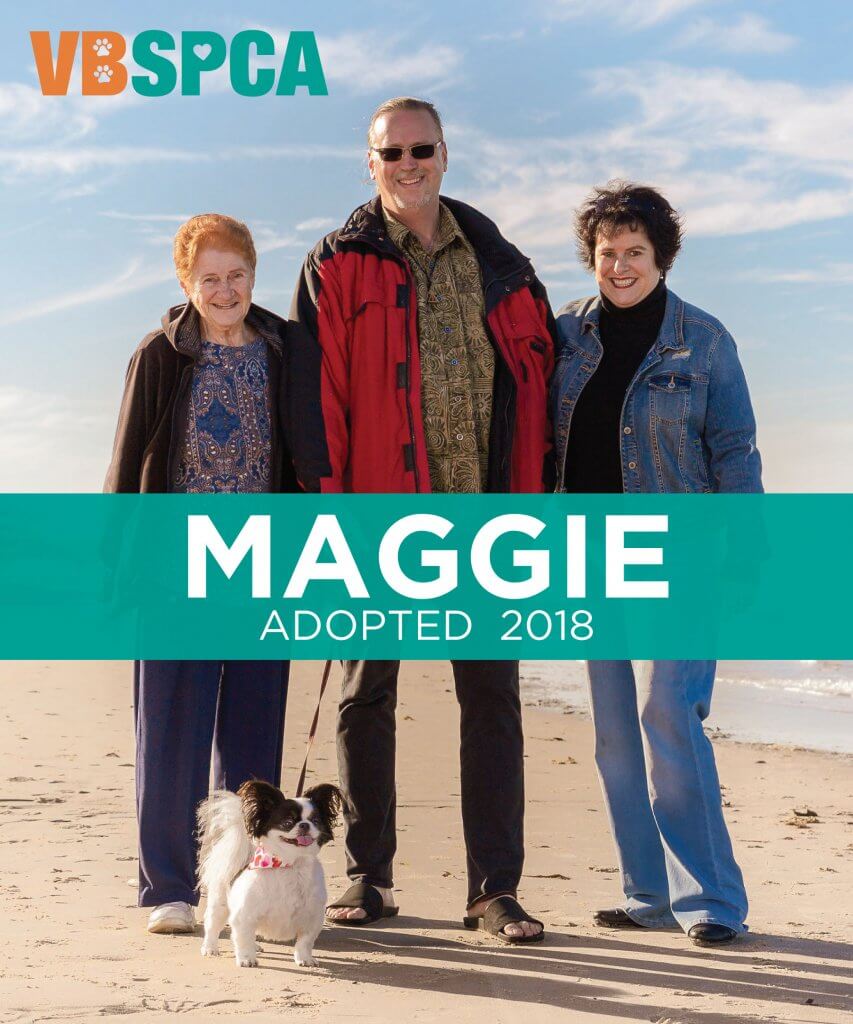
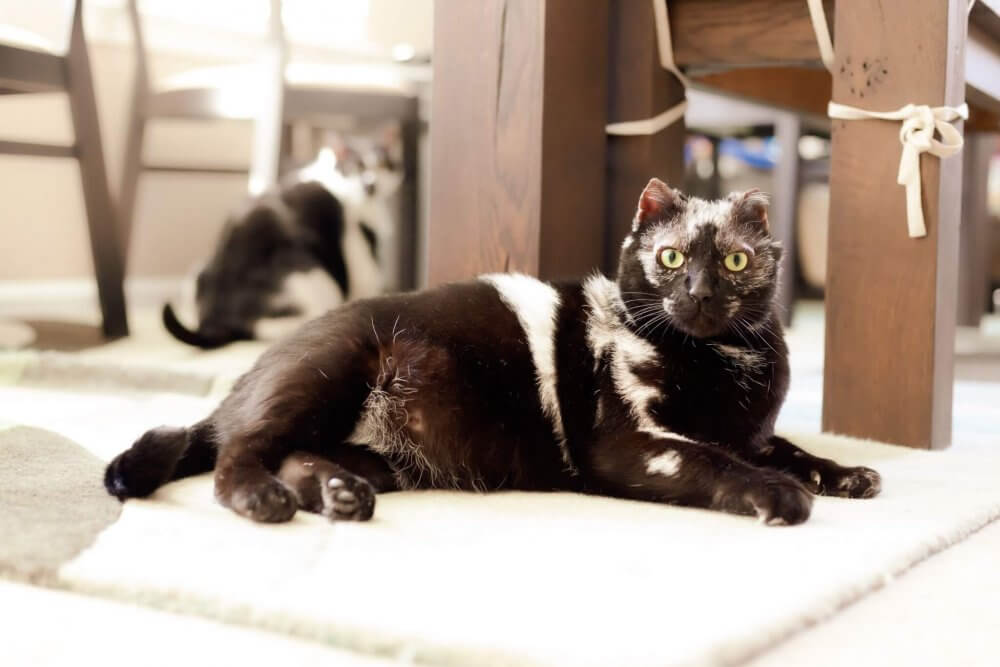
Happy Tails — Maddox
Arrived at VBSPCA on October 8, 2018 | Adopted on January 24, 2019
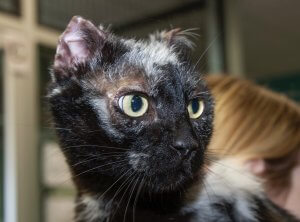 When Maddox first arrived at the VBSPCA, he caught everyone’s attention. He’d been in an accident and was covered in burn wounds with open sores on his ears and neck. Our cattery staff took delicate care of Maddox in the months that followed, making sure his wounds were cleaned and medicated while also giving him lots of affection. After 4 long but TLC-filled months at the VBSPCA, Maddox was finally adopted. We reached out to his adopters to see how he is doing, and here is what they had to say:
When Maddox first arrived at the VBSPCA, he caught everyone’s attention. He’d been in an accident and was covered in burn wounds with open sores on his ears and neck. Our cattery staff took delicate care of Maddox in the months that followed, making sure his wounds were cleaned and medicated while also giving him lots of affection. After 4 long but TLC-filled months at the VBSPCA, Maddox was finally adopted. We reached out to his adopters to see how he is doing, and here is what they had to say:
How is Maddox doing in the home?
Maddox is quite the character and even a year later, parts of his personality are still coming out. He makes us laugh every single day. He is the most energetic, playful, feather loving, cuddly little boy who you can always count on having his tongue out. I’m pretty sure he thinks he is just like our dog Scooter because some of the things he does to mimic Scooter.
What was it about Maddox that made you choose him?
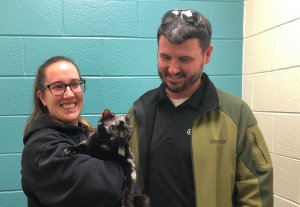 Greg and I were looking to add another cat to our family as a companion for our other cat, Oreo.
Greg and I were looking to add another cat to our family as a companion for our other cat, Oreo.
I was scrolling through the VBSPCA website at the current adoptable animals and that is when I came across Maddox, then known as Nelson. His markings in the picture and his look really intrigued me, not knowing the past he had, at the time. Greg and I chose a weekend to stop in and meet him and it was love at first sight. Learning his backstory about being burned made us want him for our family even more, especially knowing the love and life that we would give him. We had to wait a couple weeks for medical testing before we could take him home and now we can’t remember what life was like before him.
Why do you think people should adopt animals that need a little extra TLC?
 Animals who have a rough past have the most love and appreciation to give when they find the right family for them. A quote that I have read that has stuck with me is “an animal might only be a part of your life, but to them, you are their whole life” and I couldn’t agree with that more. It may take some time for them to come around, but when they start to love you back and show you their personality, there is nothing better than that! We feel so blessed to have Maddox in our family and all that he has added to it since last year.
Animals who have a rough past have the most love and appreciation to give when they find the right family for them. A quote that I have read that has stuck with me is “an animal might only be a part of your life, but to them, you are their whole life” and I couldn’t agree with that more. It may take some time for them to come around, but when they start to love you back and show you their personality, there is nothing better than that! We feel so blessed to have Maddox in our family and all that he has added to it since last year.
If you are interested in welcoming a pet into your home, view our adoptable animals here.
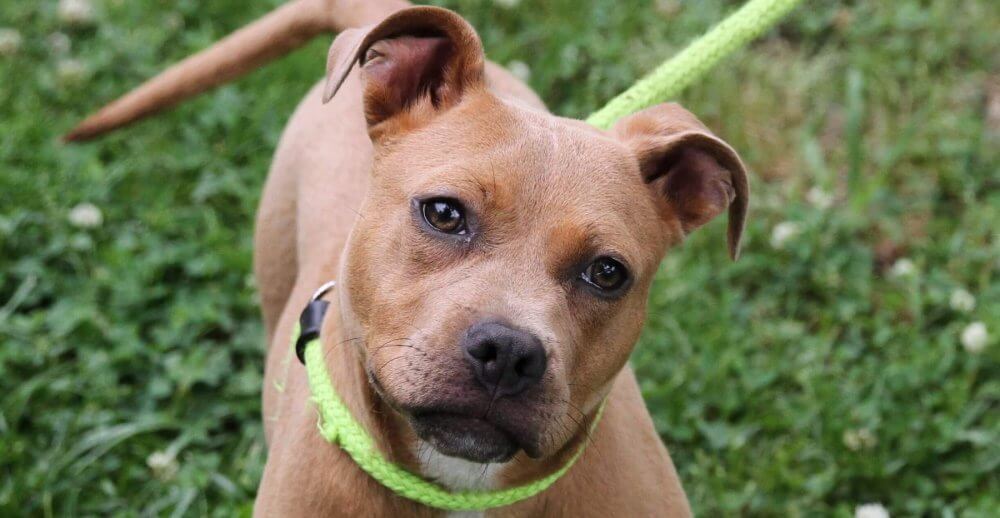
Helpful Tips to Protect Your Pet Against Poison
An important facet of pet ownership is keeping your pet safe. While some dangers are clear and obvious, many potential threats are not… especially when it comes to what your pet ingests. Please familiarize yourself with the below list of potentially dangerous substances along with some tips on how to safely store items in your home. Being cautious and aware could potentially save your pet’s life.
Outdoor Products and Plants
When exploring a new park or trail, always monitor your dog closely. Pesticides, fertilizers, and insecticides could be fatal, so always make sure they are dried completely before letting your dog roam in the area. Additionally, remember to always store lawn products out of your pet’s reach. Plants can also be dangerous for both cats and dogs. The most common poisonous plants for the Hampton Roads area are yew, azalea, and lilies. Cat owners should be especially careful with lilies – click here to learn more.
Household and Food Products
Many common household items can be fatal to pets. These include chocolate, grapes, garlic, onions, coffee grounds, alcoholic drinks, homemade play dough, fabric softener sheets, and detergent. Cleaners and automotive products, such as Windex or antifreeze, can also cause side effects ranging from a stomach ache to death. Keep all of these products in a secure place that you know your animals cannot access.
Medications
Medications should always be prescribed by a veterinarian, and keep in mind that animals can overdose on medications just like humans. Also, certain flea preventatives can cause side effects, so make sure to always consult your veterinarian before purchasing a specific brand. Another common way to poison your pet is by accidentally using products on one animal that are meant for another. A pet medication meant for a dog should not be given to a cat or a rabbit. Keep human medications stored in a secure place. One 500mg tylenol tablet could be fatal to a cat and one 200mg ibuprofen could potentially cause stomach problems in a smaller dog.
Things to remember
- Keep all products out of your furry friend’s reach.
- When in a new outdoor place, monitor your dog closely to ensure he or she is not ingesting something dangerous.
- Medications are species specific and are only to be given after being prescribed or speaking to your pet’s veterinarian.
- If your pet has ingested something that it should not have, please see a veterinarian immediately.
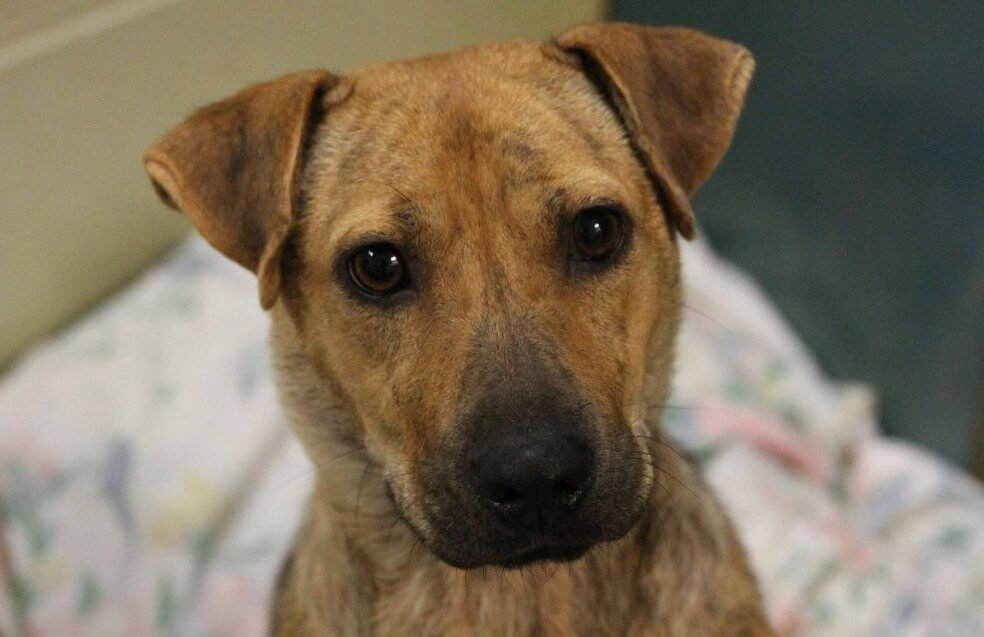
The Importance of Vaccinating Your Pet
Vaccines are a critical part of pet ownership as they ensure not only the safety of your own pet, but they also prevent your pet from spreading infectious diseases to other animals. There are a number of vaccinations that are essential to keeping your pet healthy and they vary between species, so we’ve created a list to help keep you informed and up to date.
A few things to keep in mind:
- Prevention is much more cost effective than treatment, so vaccines are a smart financial choice for pet owners.
- Just because your puppy or kitten was vaccinated when they were young does not mean they are vaccinated for their lifetime. Certain vaccinations require additional boosters and the rabies vaccine needs to be updated annually, so you want to make sure that your pet remains protected throughout their life.
- Vaccines are essential for both indoor and outdoor pets. It is a common misconception that indoor animals do not need vaccines, but even the most obedient indoor pets can end up loose outside accidentally.
Please reference the below infographic to see what vaccinations apply to your pet. For more information on each vaccine and what it protects against, click here.

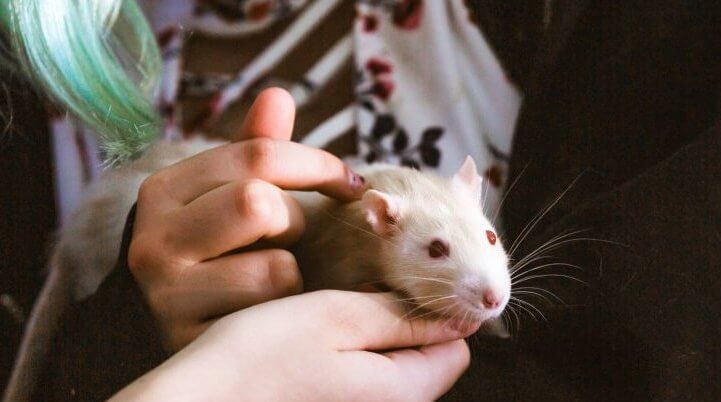
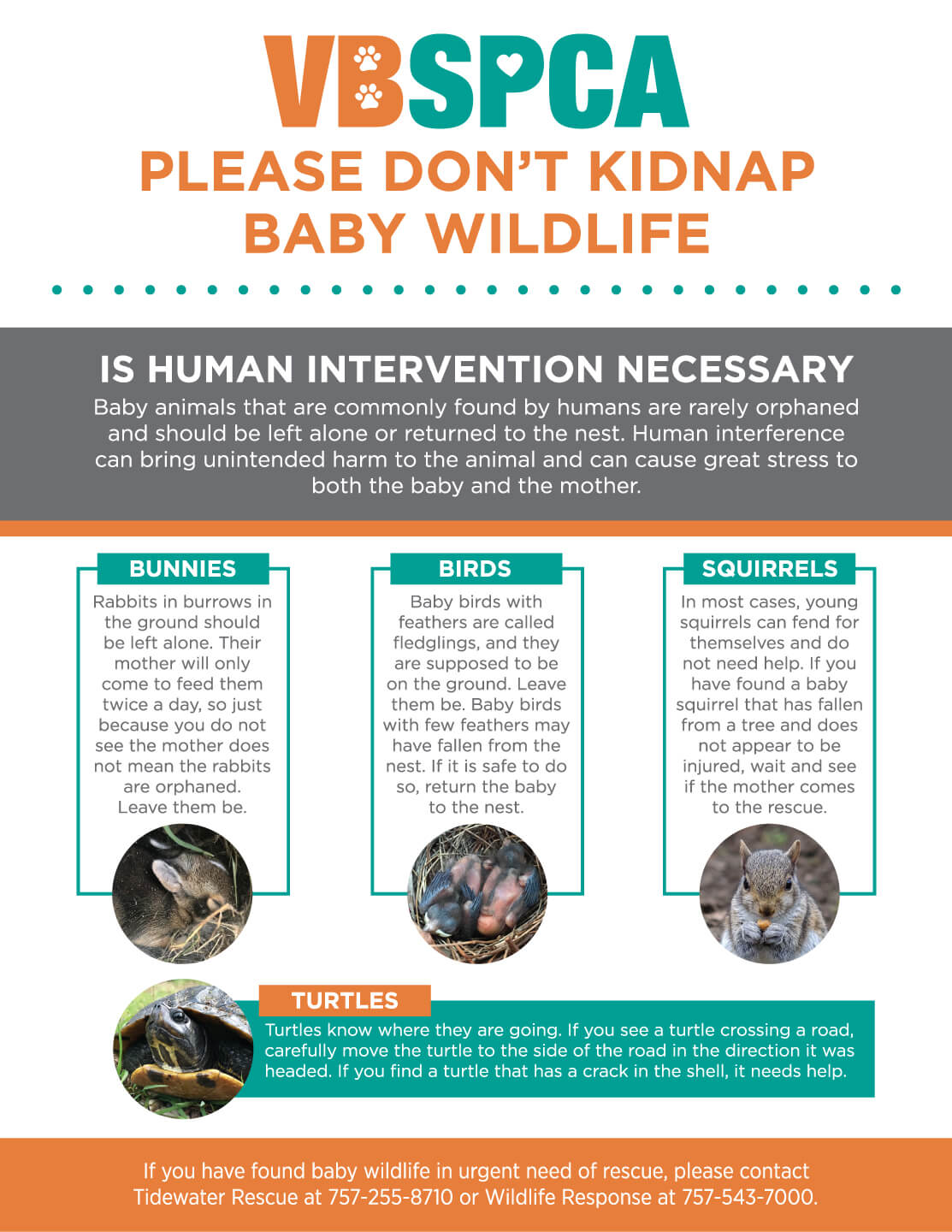

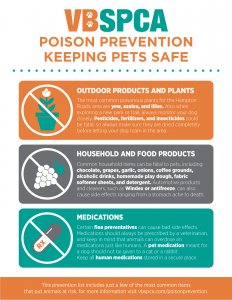
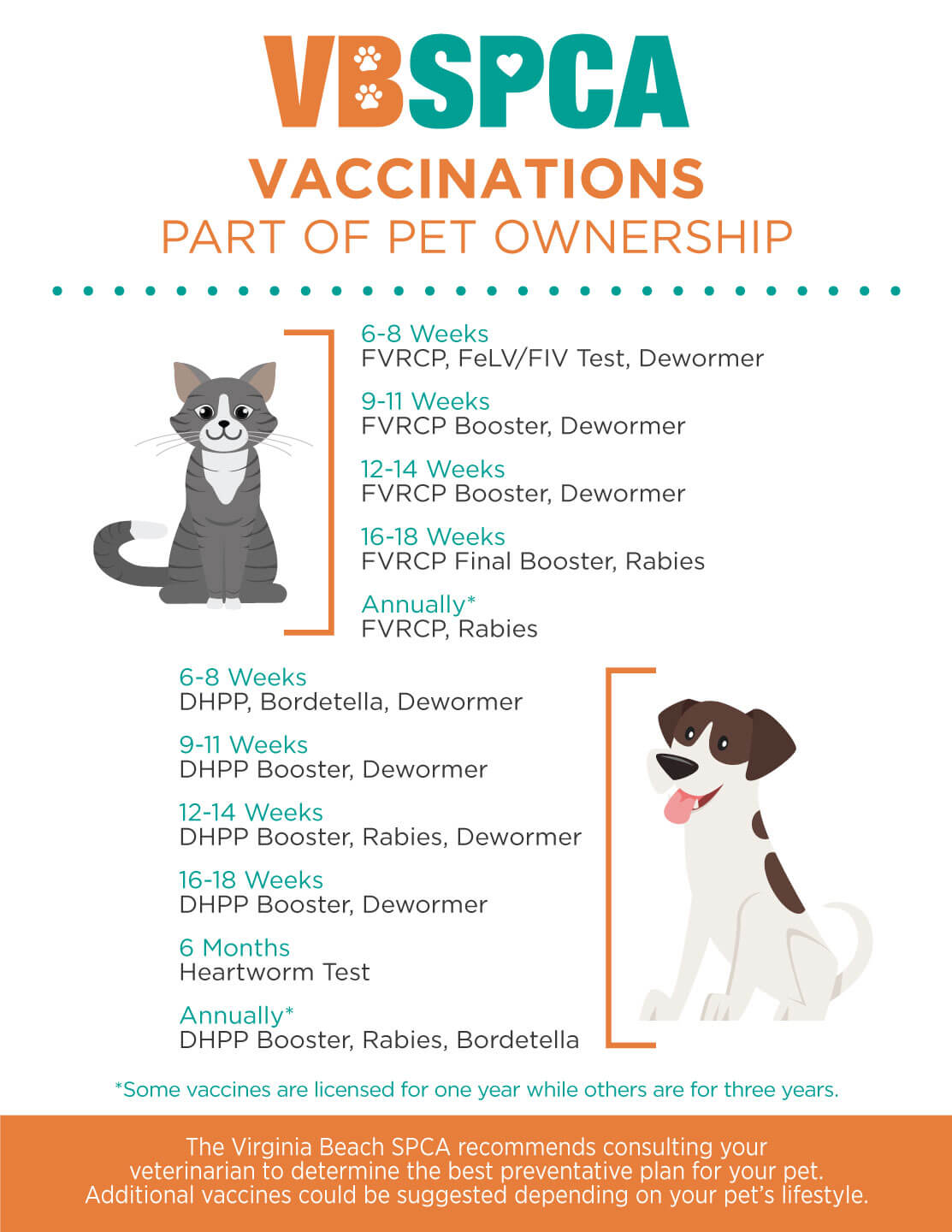

















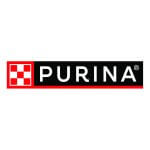

Last Updated: May 27, 2022 by vbspcaadmin
Happy Tails — Squirt
Every single animal that comes through our shelter has a story. Some are complex, many are sad, but all of them get better the minute they arrive at the Virginia Beach SPCA. However, as important of a role as our shelter plays in each story, the happily ever after is why we’re here. The second chances begin with us, but forever is what it’s all about.
VBSPCA adopters are an integral part of our mission, and this month we would like to shine our spotlight on VBSPCA employee and adopter Kat, who welcomed sweet Squirt into her home and gave him the happily ever after he deserved.
How did you first meet Squirt?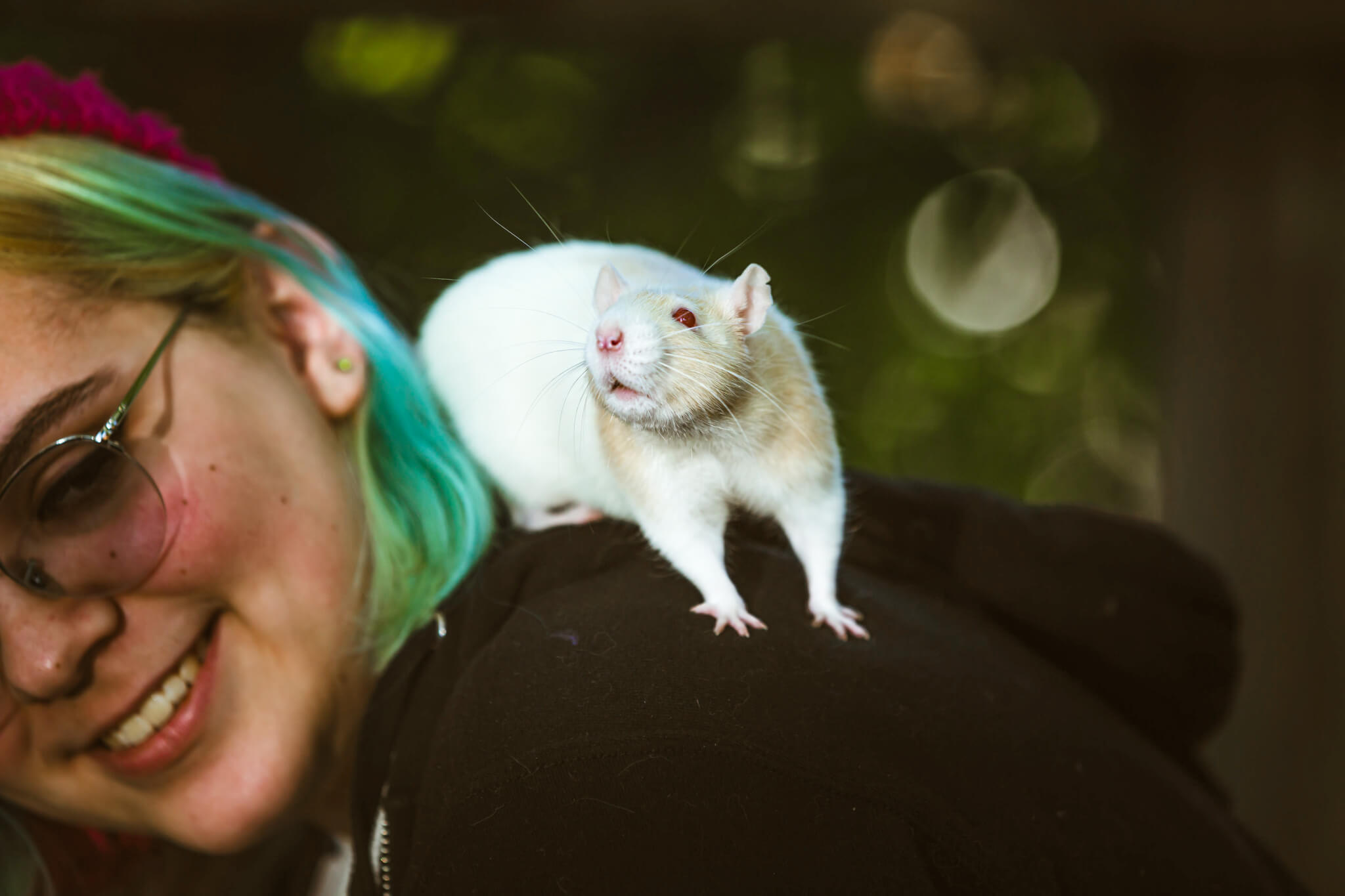
I work at the VBSPCA and Squirt first came to the shelter all the way back in February with his brother Squish. Both of the boys were pretty scared and often nipped at the workers. I began to work on socializing Squish first since he was more shy than scared and it went really smoothly. But then there was Squirt. This little guy had a lot of issues at the shelter. He was scared and often felt he had to defend himself around unfamiliar people. I was offered a chance to foster Squirt to see how he would do in a home environment, and less than a week later I was given the chance to adopt the little guy since he already bonded to me.
How is Squirt doing in the home with the family?
After I had gone to bed that first night with Squirt in the home, my dad picked Squirt up from the cage and let him sit on his shoulder for a few minutes. According to my mom, he had this big, dopey grin on his face and said that Squirt seemed like a “good rat”. When my family adopted him, he acted like a stereotypical dad would and acted like he didn’t care for the rat, but I know he does secretly.
How has Squirt impacted your life since adoption?
I’m just happy I was able to show others how great of a rat he is. I’m really glad I’m able to give him a good home with a lot of love. I always say good morning to him before work and tend to push him into my family members’ faces before bedtime. He’s just been a cute bundle of joy that loves to sit in the hoods of jackets and sweatshirts, which my little sister has plenty of.
Why should someone consider adopting from the VBSPCA?
Families should consider adopting from the VBSPCA because it gives these animals a second chance at love. Sometimes these animals come from bad situations and need a loving family to show them the good in life and bring the best out of them. I’m happy that I could be that for Squirt.